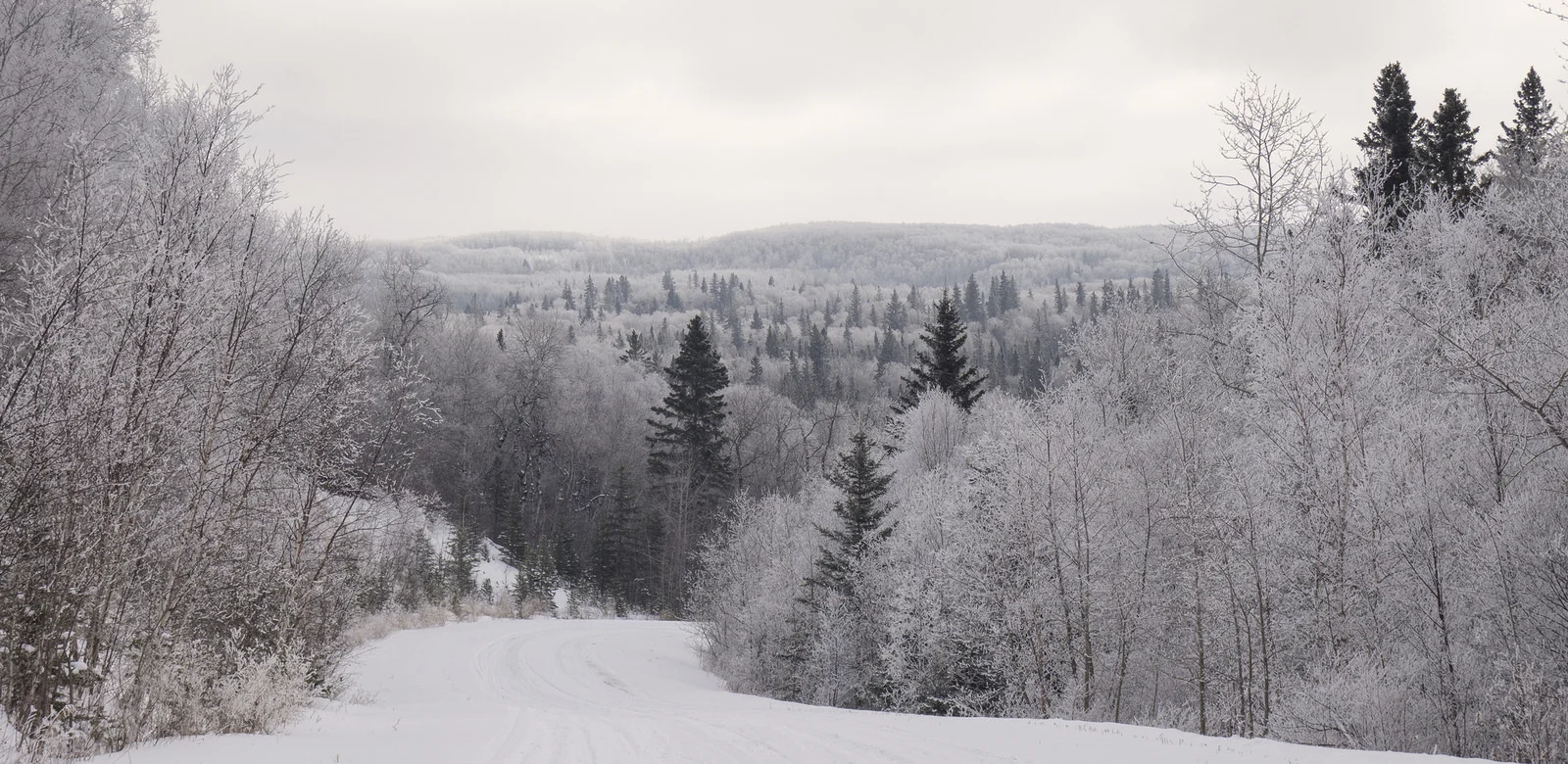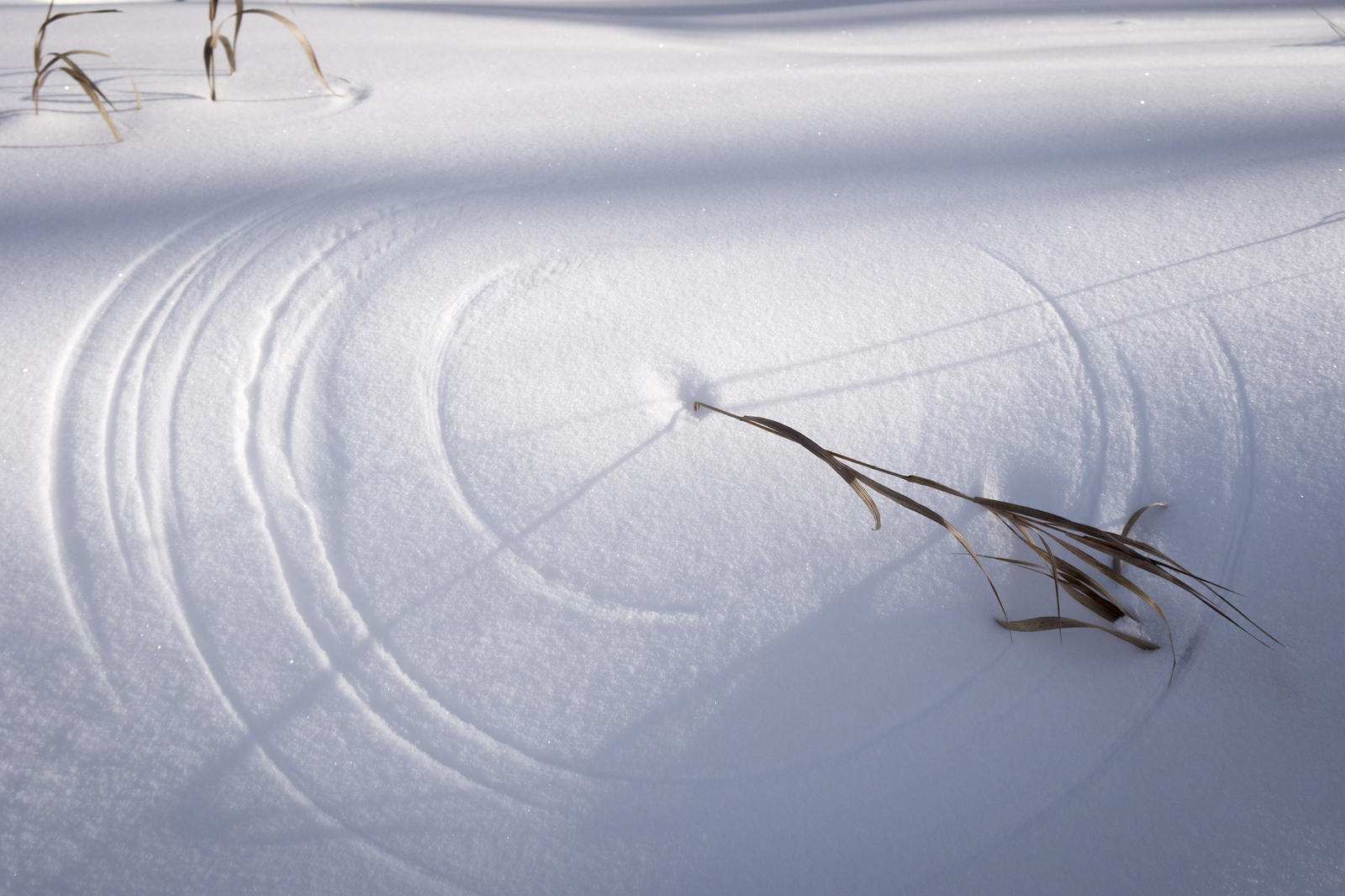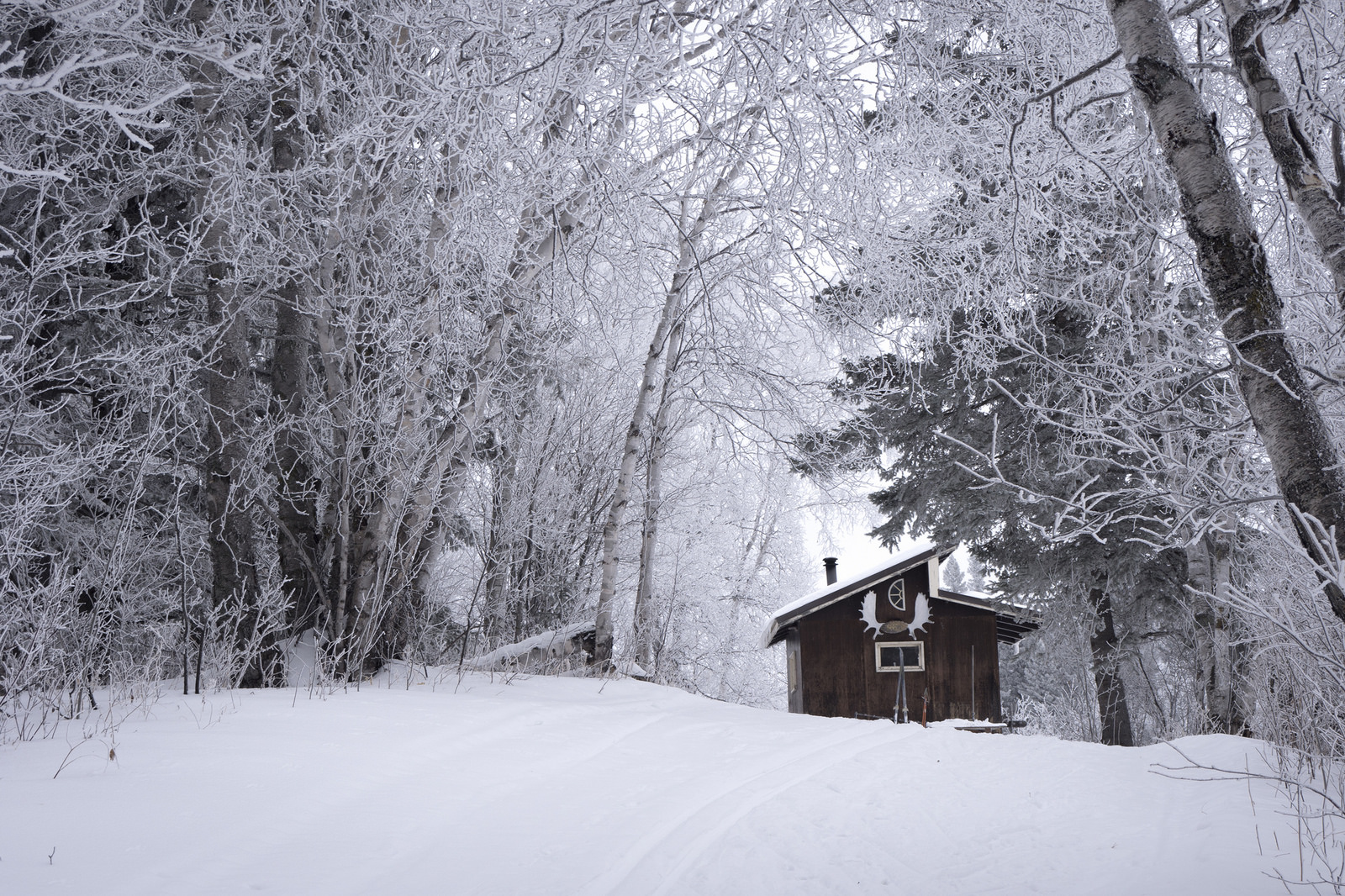Photo Series by Andy Goodson
I never spend more than a few nights at Duck Mountain during the winter. But early this year I found myself with no obligations and unprecedented free time, so I took three weeks to record music at the family cabin. Naturally, having set a creative goal for myself, I went to great lengths to distract myself with other hobbies, namely photography.
I took an afternoon off from recording and visited Little Boggy Creek, near the ski hill south of Madge Lake. My adventure-mobile did not have worthy tires and, when trying to leave the valley, I got stuck in a ditch. I walked to the top of the valley to see if I could get cell reception, but no luck.
By the time I was able to contact help, there was only an hour of sunlight left. I was poorly dressed and was still several kilometres short of reaching the nearest highway. Knowing Sean was coming out to help was a relief beyond words. The forest, which had taken on a cold, malevolent character, reverted immediately to its typical winter splendor.
A couple days after getting towed out by Sean (and losing my sideview mirror to the hedge along his driveway), I decided to retire the adventure-mobile and grab cross-country skis instead. The temperature was a balmy -6°C. The forest was covered in hoarfrost—something I've rarely experienced in such pleasant weather.
Winter at the Duck Mountains was as beautiful as I expected—I was even able to finish recording a handful of songs. But after making dozens of trips to a frozen outhouse, boiling snow for dish-water and sustaining on Brazil nuts and Chester Fried Chicken, I could only wait patiently for the thaw.










